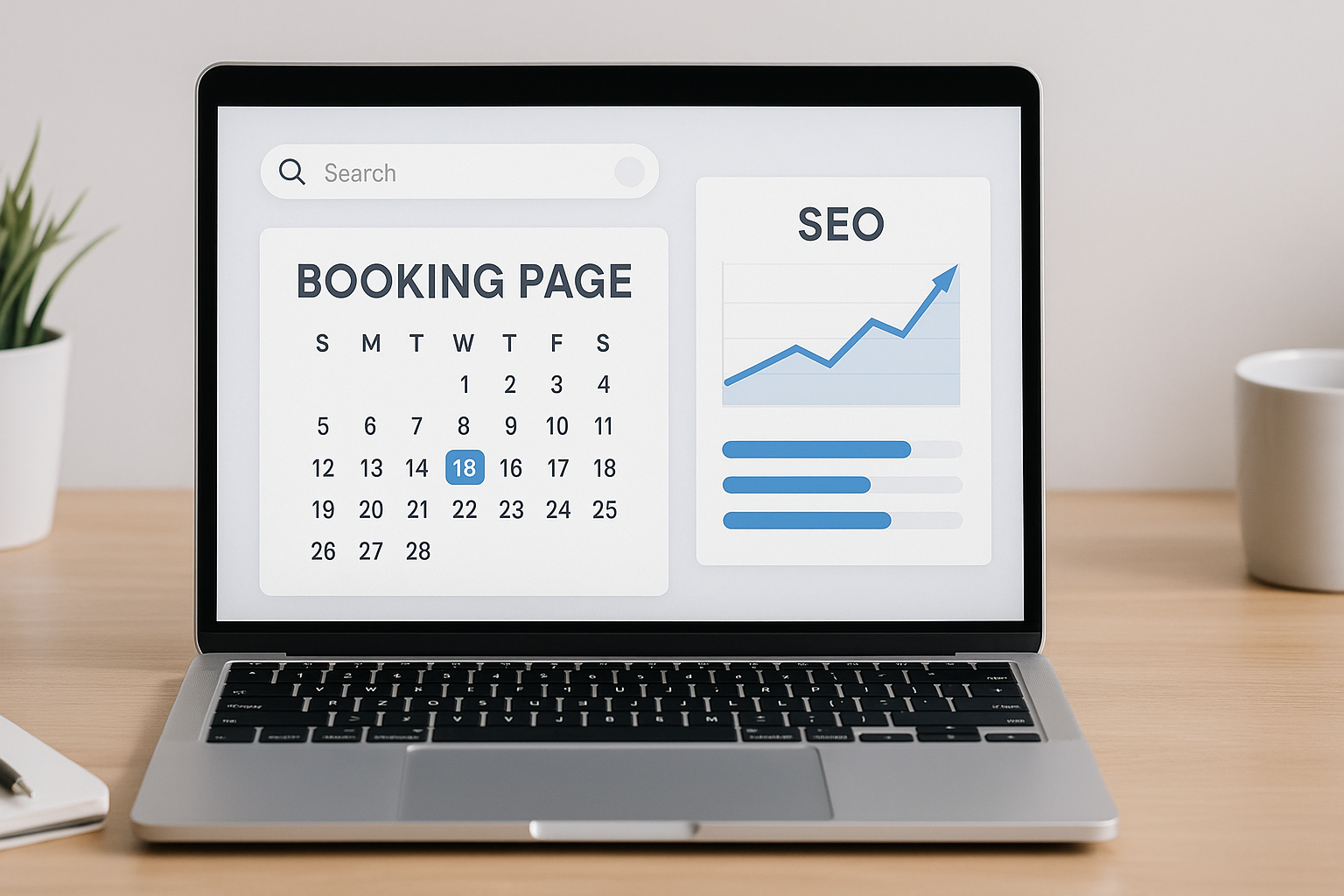In the fast-paced world of digital marketing, having the appropriate tools can make all the difference. HubSpot has long been a go-to platform for businesses seeking to streamline their marketing efforts, but it’s not the only player in the game. Several alternatives have emerged, offering similar functionalities and sometimes even more advanced features. Whether you’re a small startup or a large enterprise, exploring these alternatives can help you find the perfect fit for your marketing needs. Let’s dive into the top 4 HubSpot alternatives in 2024.
Overview Of Hubspot And Its Features
HubSpot is a comprehensive inbound marketing and sales platform offering tools for CRM, marketing, sales, and customer service. Its extensive suite of tools includes lead management, email marketing, social media management, content management, analytics, and automation. Here are its key features
- CRM (Customer Relationship Management): HubSpot offers a robust CRM system for managing contacts, tracking interactions, and automating tasks.
- Marketing Hub: This suite enables businesses to create, automate, and analyse marketing campaigns across various channels such as email, social media, and SEO.
- Sales Hub: Sales teams can use Sales Hub to track leads, manage pipelines, automate outreach, and analyse performance metrics.
- Service Hub: Service Hub facilitates customer support and engagement through ticketing systems, knowledge base creation, and live chat functionality.
- CMS (Content Management System): HubSpot’s CMS allows users to quickly build and manage websites, incorporating SEO optimization and responsive design.
- Analytics: HubSpot provides comprehensive analytics and reporting tools to track the performance of marketing, sales, and service efforts.
- Integration: It integrates seamlessly with numerous third-party apps and services, enhancing its functionality and flexibility.
Why Consider Alternatives To Hubspot?
While HubSpot remains a robust marketing automation tool, exploring its alternatives ensures you stay competitive and adapt to changing market demands. Embracing alternatives can lead to enhanced efficiency, improved performance, and potentially cost-effective solutions for your marketing strategies.
Alternatives to HubSpot can be beneficial for several reasons:
- Cost: HubSpot can be expensive, especially for smaller businesses or startups. Alternative platforms may offer similar features at a lower price or even free.
- Flexibility: While HubSpot is a comprehensive tool, it may not cater to every specific business need. Seeking alternatives can help you find platforms that provide more flexibility and customization options.
- Integration: Depending on your existing tech stack, other platforms may integrate more seamlessly with your current systems, saving time and effort in implementation and data transfer.
- Specialization: Some alternatives focus on specific aspects of marketing or sales, such as email marketing, social media management, or CRM. These specialized tools may be more suitable and cost-effective if you only need specific features.
- Customer Support: HubSpot’s customer support may not always meet your expectations. Evaluating alternatives can help you find a platform with better customer service and support options.
- Innovation: Other platforms may be more innovative or agile in introducing new features and updates, ensuring your marketing plans remain ahead of the curve.
- User Experience: The user interface and ease of navigation vary among platforms. Exploring alternatives allows you to choose a tool that better aligns with your team’s preferences and workflows.
Top 4 HubSpot Alternatives In 2024
When considering marketing automation tools, HubSpot has been a popular choice for many businesses. However, exploring alternatives that may better suit your company’s needs is essential in the ever-evolving digital marketing landscape.
From features and pricing to pros and cons, we will provide an in-depth analysis to help you decide on your marketing automation needs.
Salesforce
When considering alternatives to HubSpot, Salesforce is a powerful contender, renowned for its CRM solutions. Salesforce offers vast tools for sales, marketing, customer service, and more. Its scalability makes it worthy for businesses of all sizes, from startups to enterprise-level organizations. Unlike HubSpot, which primarily focuses on inbound marketing, Salesforce provides a broader array of functionalities, including advanced analytics, AI-driven insights, and extensive customization options. However, while Salesforce excels in versatility and depth, it may pose challenges for smaller businesses due to its complexity and higher learning curve.
Features:
- CRM Integration: Salesforce offers a CRM platform that seamlessly integrates with various business processes.
- Marketing Automation: Like HubSpot, Salesforce provides marketing automation tools for lead nurturing and campaign management.
- Analytics and Reporting: Salesforce offers advanced analytics capabilities for tracking sales performance, marketing ROI, and customer engagement metrics.
- Customization: Salesforce’s highly customizable platform allows businesses to tailor workflows, dashboards, and reports to suit their unique requirements.
Pros:
- Scalability: Salesforce is highly scalable, making it suitable for businesses of all sizes.
- Comprehensive Solution: It provides various functionalities beyond marketing, including sales automation, customer service, and analytics.
- Integration Capabilities: Salesforce offers extensive integration options with third-party applications and systems.
Cons:
- Complexity: Salesforce’s extensive feature set can be challenging for new CRM system users to navigate the learning process.
- Cost: While Salesforce offers powerful features, it has a higher price point than HubSpot, which may be prohibitive for some businesses.
- Resource Intensive: Implementing and managing Salesforce effectively may require dedicated IT resources and training.
Pricing:
Salesforce offers various pricing tiers, including Essentials, Professional, Enterprise, and Unlimited. Depending on the features and functionalities required, costs range from $25 to $300 per user per month. Custom pricing options are also available for enterprise-level solutions with advanced customization and support requirements.
ActiveCampaign
ActiveCampaign emerges as a solid alternative to HubSpot, offering a broad marketing automation suite and CRM tools. Its user-friendly interface and powerful features make it a popular way out for businesses seeking to streamline their marketing efforts. ActiveCampaign provides a seamless blend of email marketing, CRM, and sales automation, empowering businesses to nurture leads effectively and drive conversions. As businesses increasingly prioritize personalized marketing and customer engagement, ActiveCampaign stands out for its ability to deliver targeted messaging and automation workflows tailored to individual customer journeys.
Features:
- Email Marketing: Advanced marketing capabilities include segmentation, dynamic content, and A/B testing.
- Marketing Automation: Create complex automation workflows to engage with leads and customers at every stage of the funnel.
- CRM: Manage customer relationships efficiently with built-in CRM features for lead scoring, contact management, and sales automation.
- Sales Automation: Streamline sales processes with automation features like lead scoring, task automation, and deal tracking.
Pros:
- User-Friendly Interface: Intuitive design makes navigating and utilising its features easy for users.
- Automation Capabilities: Automation tools enable businesses to automate repetitive tasks and personalize customer interactions.
- Affordable Pricing: Offers competitive pricing plans with scalable options suitable for businesses of all sizes.
Cons:
- Learning Curve: While user-friendly, mastering all of ActiveCampaign’s features may require some initial learning.
- Integration Complexity: Integrating with other software or platforms may require technical expertise.
Pricing:
ActiveCampaign offers various pricing plans based on your business’s size and needs. Basic Marketing plans start at $9 per month, and Sales plans start at $19 monthly. Pricing plans typically range from $9 to $259+ per month, with custom enterprise plans available for larger organizations.
Pipedrive
Pipedrive stands out as a formidable alternative to HubSpot. It offers a streamlined approach to CRM (Customer Relationship Management), focusing on sales pipeline management. It’s designed to help businesses manage their sales processes effectively, from lead generation to deal closure. Pipedrive’s intuitive interface features make it a popular choice among sales teams looking for a straightforward yet powerful CRM solution. With its emphasis on simplicity and efficiency, Pipedrive caters to small, mid and large businesses, from startups to enterprise-level organizations.
Features:
- Pipeline Management: Easily visualize and manage your sales pipeline, track deals through various stages, and prioritize tasks.
- Contact Management: Keep detailed records of contacts, interactions, and communication history in one centralized location.
- Email Integration: Seamlessly integrate with email platforms to track communication and automate follow-ups.
- Reporting and Analytics: Gain insights into sales performance with customizable reports and analytics dashboards.
- Mobile Accessibility: Stay connected and manage sales on the go with mobile apps for iOS and Android devices.
Pros:
- User-Friendly Interface: Intuitive design makes it simple for sales teams to adopt and use effectively.
- Customization: Highly customizable features allow businesses to tailor the CRM to their needs.
- Automation: Automate repetitive tasks and workflows to streamline sales processes and increase efficiency.
Cons:
- Limited Marketing Automation: While Pipedrive excels in sales pipeline management, it lacks marketing automation capabilities compared to HubSpot.
- Integration Options: While Pipedrive offers integrations with various third-party tools, the ecosystem may not be as extensive as HubSpot’s.
Pricing:
Pipedrive offers flexible pricing plans to accommodate businesses of all sizes, from $12 per monthly user for the Essential plan to $79 for the Enterprise plan. Higher-tier plans unlock additional features and functionality, such as advanced reporting and integrations.
Zoho CRM
Zoho CRM emerges as a solid alternative to HubSpot. It offers a comprehensive suite of customer relationship management tools tailored to diverse business needs. With its user-friendly interface and extensive customization choices, Zoho CRM effectively empowers businesses to streamline sales, marketing, and customer support processes.
Features:
- Lead Management: Zoho CRM facilitates lead tracking from acquisition to conversion, ensuring no missed opportunity.
- Automation: Automation workflows enhance productivity by automating repetitive tasks like email follow-ups and lead assignments.
- Analytics: Analytics tools provide insights into sales performance, campaign effectiveness, and customer behaviour, enabling data-driven decision-making.
- Integration: Seamless integration with third-party applications, such as email marketing platforms and accounting software, enhances functionality and workflow efficiency.
- Mobile Accessibility: Zoho CRM, accessible via mobile apps, enables sales teams to remain productive on the go, ensuring no missed opportunities.
Pros:
- Affordability: Zoho CRM offers competitive pricing plans suitable for businesses of all sizes, making it an attractive option for startups and SMBs.
- Customization: Extensive customization options allow businesses to tailor the CRM to their specific requirements without extensive coding knowledge.
- Scalability: Zoho CRM scales with the growth of your business, ensuring continuity and support as your needs evolve.
Cons:
- Learning Curve: While user-friendly, Zoho CRM may have a learning curve for users unknown of CRM systems.
- Limited Support: Some users report that customer support can be slow or lacking in resolving complex issues.
Pricing:
Zoho CRM offers a range of pricing plans, from a free version with basic functionalities to higher-tier plans with advanced features and support options. Pricing is based on the number of users and desired features, allowing businesses to select a plan that aligns with their budget and requirements.
Venturz
Venturz is an all-in-one startup platform, offering a modern and lean alternative to traditional CRMs like HubSpot. Designed to empower entrepreneurs and growing teams, Venturz combines essential business tools such as CRM, marketing automation, project management, collaboration, and fundraising features into a unified, user-friendly platform. Its startup-centric approach and flexibility make it especially attractive for small businesses, solopreneurs, and agile teams looking for a cost-effective, scalable solution.
Features:
- CRM & Lead Management: Venturz includes a fully integrated CRM to manage contacts, track leads, and monitor the entire customer journey in one place.
- Email Marketing & Campaign Automation: Easily create and automate targeted email campaigns with customizable templates and behavior-based triggers.
- Project & Task Management: Built-in project tools allow teams to manage workflows, assign tasks, set deadlines, and track progress with Kanban boards.
- Fundraising Tools: Unique to Venturz, users can manage investor pipelines, pitch decks, and funding stages—all within the same ecosystem.
- Community Engagement: Offers community-building features such as member portals, blogs, and discussion boards to engage users or customers more deeply.
Pros:
- All-in-One Platform: Combines multiple tools—CRM, marketing, fundraising, and collaboration—into a single cohesive platform.
- Startup-Focused Design: Tailored features and pricing cater specifically to early-stage businesses and lean teams.
- Affordability: Offers a generous free plan and competitive pricing tiers, making it accessible to budget-conscious users.
Cons:
- Limited Third-Party Integrations: As a newer platform, Venturz may not yet support as many third-party integrations as more established competitors.
- Feature Maturity: Some advanced functionalities may still be evolving compared to legacy platforms like HubSpot.
Pricing:
Venturz offers four pricing tiers to suit different stages of business growth:
- Seed: $0/month – Ideal for early-stage startups and solo founders.
- Sprout: $29/month – Adds more marketing and automation features for growing teams.
- Sapling: $79/month – Unlocks advanced tools, enhanced customization, and team collaboration.
- Plant: $199/month – Full access to premium features, investor tools, and priority support for scaling businesses.
Conclusion
In conclusion, exploring alternatives to HubSpot can be a strategic move for businesses seeking tailored solutions that align with their specific requirements and budgetary considerations. Through our analysis of various alternatives, we found several robust platforms, each with unique features, pricing structures, and advantages.
While HubSpot remains a popular choice for many businesses due to its comprehensive suite of marketing, sales, and CRM tools, it may not be the perfect fit for every organization. Scalability, customization options, integration capabilities, and customer support should all be carefully evaluated when considering alternative solutions.
Ultimately, choosing an alternative to HubSpot will depend on your organization’s requirements, objectives, and budget constraints. We recommend conducting thorough evaluations, including trials or demos where possible, to determine which solution best aligns with your needs.








